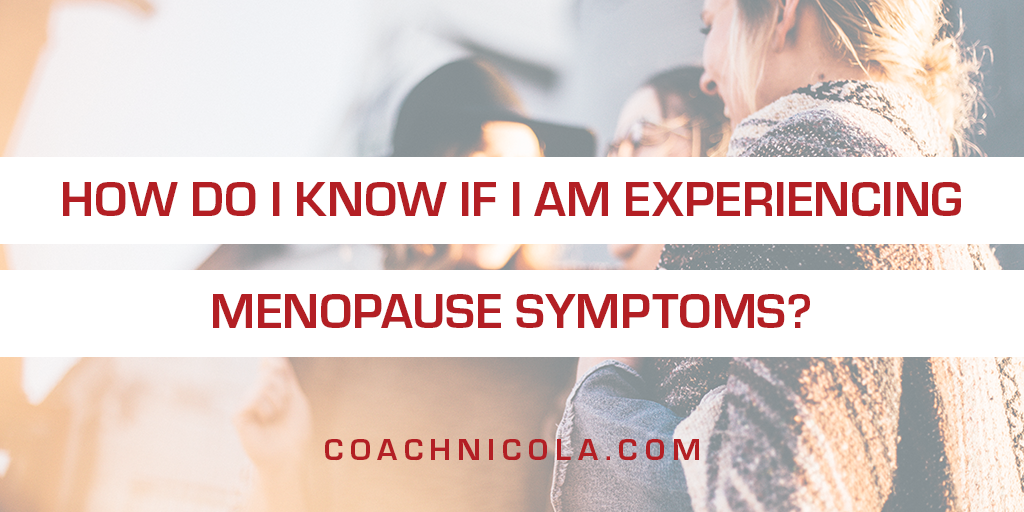
How do I know if I am experiencing menopause symptoms

Have you started experiencing changes in your body and aren’t sure if this is the menopause? Perhaps you feel that you are too young for these symptoms, or you had symptoms a while ago and they’ve recently returned?
Well, fear not, here’s my brief guide to working out what this all means.
Menopause symptoms can start in your late 30s
Whilst a lot of people think that menopause related changes happen in our 50s, our hormones can start changing from our late 30s onwards.
The word “menopause” just means your final period. Once you’ve not had a period for a year you are then post menopause and the average age in the UK for this to happen is 51.
However, there is a transition phase when our hormones start fluctuating, there is a change in the normal pattern of your periods, and you may start to experience other menopause symptoms. This phase is known as perimenopause and can start 10 years before your last period.
Symptoms aren’t constant
The changes in our hormones aren’t linear. They fluctuate.
Which means you can have a few months where you experience symptoms and then not have any symptoms for a while.
Often the first sign of the perimenopause is a change in the normal pattern of your periods, although this isn’t the case for everyone. The length of your cycle may become longer, your periods may become heavier.
If you think you are experiencing perimenopause symptoms but they then go away, that is usually a sign of the fluctuating changes to the hormones in your body. These changes don’t happen overnight and your hormone balance will change at different stages.
Symptoms aren’t the same for everyone
Perimenopause symptoms are caused by a natural decline in our hormones, namely estrogen, progesterone and testosterone.
Estrogen in particular doesn’t have a linear decline. It fluctuates. Sometimes you’ll have more estrogen than the other hormones, other times less. Which means the symptoms you experience can change as your hormone balance changes.
We also have lots of estrogen receptors all over the body, which means when we are low in estrogen it can cause things like joint aches, low mood and headaches, as well as the
You may notice one symptom but that goes away and you may have another one. And the way your body responds to these changes will be different from anyone else.
If you are still not sure if you are experiencing symptoms of the menopause then download my questionnaire which allows you to track and measure changes in your body.

Leave a Comment
(0 Comments)